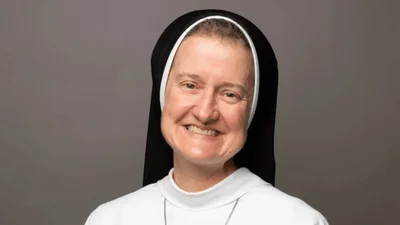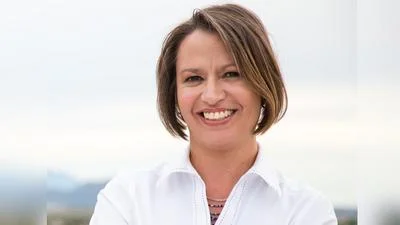Bruce Huckell, associate professor of Anthropology at The University of New Mexico and a leader in the fields of geoarchaeology, lithic technology, and early prehistoric foragers in North America, died on May 13. Huckell received his bachelor's degree in 1972, his Master of Arts in 1976, and his doctorate degree in Arid Lands Resource Sciences in 1990, all from the University of Arizona.
Huckell’s archaeological research focused on investigating past subsistence choices, lithic technological organization, and mobility patterns of hunting-gathering societies in arid and semiarid environments of the North American Southwest and western North America. He is particularly noted for his contributions to understanding Paleoindian and Archaic prehistoric populations in Arizona and New Mexico.
"As a scholar, he was careful, deliberate, detail-oriented, practical, empirical, and most importantly honest. His work was driven not by a desire for disciplinary accolades or what limited fame is associated with the small community of preceramic North American archaeologists but by a genuine desire to tell the story of the early peoples of Southwestern North America better and more accurately," said Joe Birkmann, UNM Ph.D. student.
Over his career, Huckell authored or coauthored nine books and monographs; edited or co-edited another three volumes; and had several volumes in preparation or press at the time of his death. He also authored or co-authored more than 85 peer-reviewed articles as well as book and monograph chapters.
Leslie Spier Distinguished Professor Lawrence Straus wrote: “His skills and experience in Archaic and Paleoindian archaeology, geomorphology, and lithic analysis were well reflected in his many publications and in the dissertations of his many students. He was the 'go-to' specialist in New Mexico on matters Paleoindian (and Pleistocene faunal finds) and a rigorous critic of overblown claims of great antiquity for human presence here and throughout North America.”
Huckell’s career at UNM began in 1994 when he was appointed senior research coordinator at the Maxwell Museum of Anthropology and research assistant professor in the Department of Anthropology. He advanced to research associate professor in 2000; served as interim director of the Maxwell Museum from 2005 to 2007; and from 2014 was a tenured associate professor in the Department of Anthropology.
Huckell chaired (or co-chaired) 14 Ph.D. committees at UNM while supervising additional Public Archaeology M.A. students and undergraduate honors theses. His former students have earned appointments at colleges and universities across New Mexico, Texas, Colorado, California, Nebraska among others. With experience that included work in cultural resource management (CRM) along with publication efforts based on this work he encouraged students to consider careers within public/private CRM organizations.
Joe Birkmann added: “I have spent the better part of the last six years sitting roughly eight feet from Bruce in his Hibben Center office... Bruce was patient kind giving encyclopedic knowledge... taught how conduct research be professionals... miss scholar mentor friend.”
His expertise included lithic technology where he demonstrated flint-knapping techniques to both undergraduate/graduate students along with public demonstrations teaching UNM Southwestern Archaeological Field Schools focusing on Paleoindian sites central New Mexico.
Most importantly Bruce devoted husband paleoethnobotanist Lisa W Huckell wife collaborator best friend often seen trekking landscape canine companion Noche looking out lithic scatter unique vegetation sharing love Southwest people history over their fifty-year careers together
During fall semester department will host memorial Hibben Center honoring legacy contributions made field anthropology university community broader academic circles alike









